The Daily Bulletin is published by Internal and Leadership Communications, part of University Communications
Contact us at bulletin@uwaterloo.ca
Submission guidelines
Editor:
Brandon Sweet
University Communications
bulletin@uwaterloo.ca
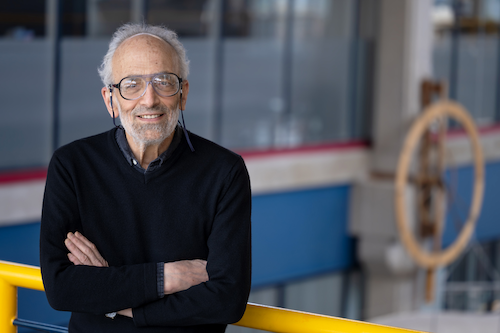
This article was originally published on the Cheriton School of Computer Science website.
Any computer scientist 70 or more years of age today knows almost every other computer scientist of those same ages, as few were in the discipline during its fledgling days. One such individual from that era is Daniel Berry, a professor in the Software Engineering group at the Cheriton School of Computer Science.
During his 50-year career as a computer science professor, he has studied, researched, and taught computer science across three countries and multiple institutions. “Over those years I’ve had the privilege of meeting many of the pioneers in computer science and working with some of them,” Dan said.
Like many of his generation, his love of computers and programming began early. “I started programming in 1965 during the summer between my junior and senior years in high school,” he reflects. “I wrote my first real-world application, a party date matching program, in 1966, during my senior year in high school. As an undergraduate at Rensselaer Polytechnic, I was programming to make some money, but I was firmly a math major. When I got to graduate school at Brown in 1969, I discovered that I had promoted myself to my level of incompetence in math. I saw that Applied Math had just started a Computer Science program. Figuring that I was still competent in that, I moved over to Computer Science. At some point during my graduate studies, Brown changed from giving a PhD in Applied Math with a concentration in Computer Science to a PhD in Computer Science. I was the first, or maybe the second, student at Brown to get a PhD in Computer Science.”
Dan ended up earning a Bachelor of Science in Mathematics from Rensselaer Polytechnic Institute in Troy, New York, in 1969, followed by a PhD in Computer Science from Brown University in Providence, Rhode Island in 1974. He never bothered to get a Master’s degree because he knew that he wanted to be a professor.
While writing up his doctorate, Dan joined the Department of Computer Science at the University of California, Los Angeles in 1972. He was the first faculty member at UCLA with a degree in computer science. Other faculty members were mathematicians, physicists, chemists, and engineers who used computers in their original fields and got hooked.
“Back in the seventies, when I started being a professor at UCLA, everyone taking CS classes was there because he or she loved computers and programming,” he recalls. “The students and faculty were real live computer geeks. Students wanted programming assignments. They were not something to be avoided, because this was the only way you could get access to a computer. Computer science departments then typically had one, big computer. You couldn’t just go up to it and start using it. You needed to have a reason, and a programming assignment was a good reason.”
UCLA, of course, is also the birthplace of the Internet, and Dan arrived only three years after its launch in 1969.
Dan reminisced, “UCLA is where the APRANET, what is now the Internet, was born. Len Kleinrock, a faculty member, was a key developer of the ARPANET, and Vint Cerf, an inventor of TCP/IP, was a student who had just graduated when I arrived at UCLA. Steve Crocker, Charlie Kline, and Jon Postel — all those pioneers instrumental in creating the Internet were at UCLA at that time.”
Experiencing history-making moments at UCLA must have been in the cards because it was during this time that the university also pulled off a series of seemingly impossible wins.
“I enjoyed watching UCLA football at the Coliseum,” Dan said. “But the best, of course, was watching UCLA basketball, especially at that time. It was incredible. UCLA’s head basketball coach, John Wooden, was the best coach for any college sport at any college across the USA. He led the Bruins to seven consecutive NCAA March Madness Championships. No coach since has ever done better than back-to-back victories. I was there for the last half of that winning streak.”
After 15 years at UCLA, Dan joined the Computer Science Faculty at the Technion in Haifa, Israel.
“I loved being at UCLA, but I joined the Technion as faculty because I wanted to live in Israel and because I felt I could make a bigger difference there than I could in the US.” While at the Technion for 11 years, he worked half-time for four years at the Software Engineering Institute at Carnegie Mellon University in Pittsburgh.
“CMU’s School of CS wanted to start a Master of Software Engineering program,” Dan said. “I had already gone into the new field of Requirements Engineering at this point. The program was supposed to have a requirements engineering course. So, I joined the SEI group that was prototyping the MSE degree program for the School of CS, specifically to develop the requirements engineering course. The course we teach today follows the same basic syllabus I set up — 50 per cent of what I teach in CS445 and SE463 today is based on that original course.”
In 1998, Dan moved to Canada to join the University of Waterloo in what was then its Department of Computer Science.
Those who have worked with Dan know that his hearing impairment limits his perception to sounds below middle C, making spoken language for him all but impossible to understand by ear. He communicates face-to-face readily using a combination of the lower-pitch sounds he can hear coupled with lip reading to understand spoken English.
“Almost everyone in Israel speaks English as a school-acquired second language so I could get by, but I could never learn to read lips in Hebrew despite much effort,” he said. “I enjoyed my time at the Technion, but because it was hard to communicate with people in Hebrew, I decided to move back to North America to a North-American-English-speaking place. But I also wanted to be within a nonstop flight to Israel so I could visit easily. And I wanted the place to be safe and affordable. That meant eastern Canada.”
Since coming to Waterloo, Dan’s research has focused mainly on requirements engineering.
“We have come to the realization that the lack of good requirements specifications for software — that is, a complete description of what software you’re developing is supposed to do — is the main cause of software defects. My current research is trying to identify the nature of the requirements whose failure to be implemented causes software to fail. It turns out that most, about 70 per cent, of these missing requirements concern handling the inevitable exception conditions to requirements that are already implemented.”
Interestingly, this often means that more than 90 per cent of the code is necessary to deal with the exceptions that happen less than 10 per cent of the time. The less frequent and more obscure an exception is, the more code is required to handle it.
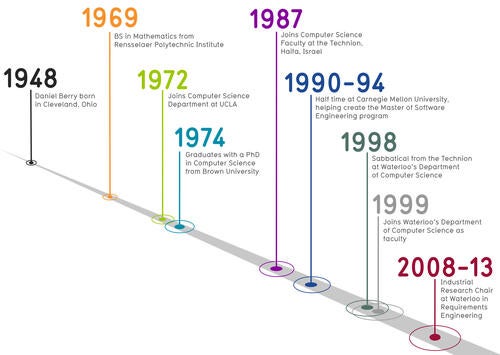
Key moments in Daniel Berry’s career.
“The big problem is that too often in the name of agility and getting software launched before the competition, it is developed without spending the time to identify the exception conditions.” Dan, his students, and colleagues try to identify the reasons that requirements engineering is not done in practice in industry, the consequences of that failure, and how to remedy it.
With regard to teaching, Dan says, “I’ve learned so much from my students at all levels. I try not to give a student a topic I’m interested in. With such a topic, it’s very hard for me not to impose my ideas about how the topic should be pursued, and that’s not good for the student. I very much prefer that the student come to me all excited about a topic he or she has picked and teach me all about it.”
Waterloo Regional Police are investigating several suspicious person incidents in neighbourhoods near the University district that occurred over the first few weeks of July.
Global News reports that a man was spotted in a backyard on Hickory Street at 2:00 a.m. on July 1, and again in the area two days later. On July 13, a man was seen peeking through windows at a house on Hickory Street near Spruce Street.
Read individual Tweet on Twitter
For more detailed information visit the Region of Waterloo Police Services website.
Anyone with information or who may have witnessed unusual activity in the area is encouraged to contact police at 519-570-9777 or Crime Stoppers at 1-800-222-8477.
“The University of Waterloo Special Constable Service (UWSCS) would ask that all our community members remain vigilant when traveling alone and utilize personal safety strategies at all times,” says a note from UWSCS. “In the event you have any questions or concerns on this matter, the University of Waterloo Special Constable Service remain available 24/7 and can be reached via phone at (519) 888-4911 or email: uw-special-constable-service@uwaterloo.ca.”
“Please stay safe and look after each other.”
A message from the Centre for Extended Learning.
The University of Waterloo has long been a leader in online learning in Canada and offers 26 fully online programs and more than 525 individual courses. We celebrate Waterloo’s expertise in this area with our Online Teaching Awards which recognize teaching and course design excellence in fully online undergraduate or graduate-level courses and programs. The Centre for Extended Learning (CEL) and the Office of the Associate Vice-President, Academic congratulate Josh Neufeld, Amanda Garcia and Burcu Karabinato the winners of the 2021 awards.
Josh Neufeld: Biology 240: Fundamentals of Microbiology
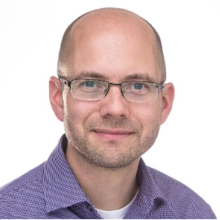 This award recognizes course instructors who exemplify a high standard of teaching in one or more of Waterloo's fully online courses.
This award recognizes course instructors who exemplify a high standard of teaching in one or more of Waterloo's fully online courses.
Many students were enthusiastic in their praise:
“...Professor Josh Neufeld truly deserves this award for his excellent formatting of the online course, his care and compassion for his students, and his outstanding enthusiasm and passion for microbiology that makes his course greatly enjoyed.”
Math 237: Calculus 3 for Honours Mathematics created by Amanda Garcia and Burcu Karabina
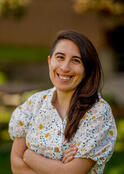 This award recognizes exemplary courses that meet or exceed the Quality Guidelines for University of Waterloo Online Courses. Amanda and Burcu worked collaboratively with CEL in the design and development.
This award recognizes exemplary courses that meet or exceed the Quality Guidelines for University of Waterloo Online Courses. Amanda and Burcu worked collaboratively with CEL in the design and development.
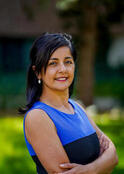 Math 237 was designed to be highly interactive and engaging, leveraging the online environment to allow more practice opportunities and hands-on exploration of concepts than would be possible in a classroom.
Math 237 was designed to be highly interactive and engaging, leveraging the online environment to allow more practice opportunities and hands-on exploration of concepts than would be possible in a classroom.
Nominations for this year’s awards, which include the Fall 2021, Winter 2022 and Spring 2022 academic terms are open until August 31, 2022.
Congratulations to Josh, Amanda and Burcu as well as all the other extraordinary instructors providing engaging, innovative, and academically rigorous online learning for our students.
A message from Information Systems & Technology (IST).
As an extension of the N: drive to OneDrive project and the move to SharePoint Online, IST will work with Academic Support Units (ASUs) to migrate content from the network file solution, R: drive (\\filed), which uses the NetApp service, to SharePoint Online and/or Teams. Creation of new R: drives for ASUs will cease immediately.
In comparison to the R: drive, SharePoint Online and/or Teams offers a more user-friendly and robust file storage solution, providing a greater amount of storage space and allowing users to access, share, and collaborate on files from anywhere on any device. Visit the Migrating R: drives to SharePoint and/or Teams Project page for more benefits.
In preparation for this change, IST will pilot the migration process, create a migration plan, and ensure the necessary documentation and supports are available. It is anticipated that users in Academic Support Units with IST-managed Windows machines will begin migrations from R: drive to SharePoint Online and/or Teams in the Fall 2022 term (migration schedule to be confirmed and communicated). IST will work with ASUs to determine the most appropriate migration path.
Participating faculties ready to begin R: drive to SharePoint Online and/or Teams migrations can contact IST for assistance.
Additional resources
Questions or concerns about this work can be submitted to Andrew McAlorum (amcalorum@uwaterloo.ca), Director, Client Services, IST.
30 years ago: Buffy the Vampire Slayer
Students can visit the Student Success Office online for supports including academic development, international student resources, immigration consulting, leadership development, exchange and study abroad, and opportunities to get involved.
Instructors looking for targeted support for developing online components for blended learning courses, transitioning remote to fully online courses, revising current online courses, and more please visit Agile Development | Centre for Extended Learning | University of Waterloo (uwaterloo.ca).
Instructors can visit the Keep Learning website to get support on adapting their teaching and learning plans for an online environment.
Course templates are available within your course in LEARN to help you build and edit your content and assignment pages quickly.
The following workshops, webinars, and events are offered by the KL team (CTE, CEL, ITMS, LIB):
Scholarship of Teaching and Learning (SoTL) Methods – self-directed, continuous self-enrollment course in LEARN.
Independent Blended Course Design (iBlend) - self-directed, continuous self-enrollment course in LEARN.
Copyright Overview for Waterloo Instructors and Staff - self-directed, continuous self-enrollment course in LEARN.
Independent Remote Course Design Essentials (iReCoDE) - self-directed, continuous self-enrollment course in LEARN.
Supporting Student Mental Health (for Instructors) – self-directed, continuous self-enrollment course in LEARN.
Supports are available for employees returning to campus. Visit IST’s Hybrid Work and Technology guidelines and workplace protocols to assist with the transition.
The Writing and Communication Centre has in-person and virtual services to support grad and undergrad students, postdocs and faculty with any writing or communication project. Services include one-to-one appointments, drop-ins at Dana Porter Library, online workshops, writing groups, English conversation practice, and custom in-class workshops.
Co-op students can get help finding a job and find supports to successfully work remotely, develop new skills, access wellness and career information, and contact a co-op or career advisor.
The Centre for Career Action (CCA) has services and programs to support undergrads, grad students, postdocs, alumni, and employees in figuring out what they value, what they’re good at, and how to access meaningful work, co-op, volunteer, or graduate/professional school opportunities. Questions about CCA's services? Live chat, call 519-888-4047, or stop by our front desk in the Tatham Centre 8:30 a.m. to 4:30 p.m., Monday to Friday.
Drop-in to Warrior Virtual Study Halls on Wednesdays from 5:30 p.m. to 7:00 p.m. Come together in this virtual space to set goals and work independently or in groups each week.
Renison's English Language Institute continues to offer virtual events and workshops to help students practice their English language skills.
If you feel overwhelmed or anxious and need to talk to somebody, please contact the University’s Campus Wellness services, either Health Services or Counselling Services. You can also contact the University's Centre for Mental Health Research and Treatment. Good2Talk is a post-secondary student helpline available to all students.
The Library is open with expanded hours for access to book stacks, drop-in individual study space, bookable group study rooms, drop-in access to computers and printers, book pick-up services and IST Help Desk support. Librarian consultations, Special Collections & Archives and the Geospatial Centre are available by appointment. Full details on current services and hours are available on the Library’s COVID-19 Update webpage.
The Faculty Association of the University of Waterloo (FAUW) continues to advocate for its members. Check out the FAUW blog for more information.
The University of Waterloo Staff Association (UWSA) continues to advocate for its members. Check out the UWSA blog for more information.
The Sexual Violence Prevention and Response Office (SVPRO) supports all members of the University of Waterloo campus community who have experienced, or been impacted, by sexual violence. This includes all students, staff, faculty and visitors on the main campus, the satellite campuses, and at the affiliated and federated Waterloo Institutes and Colleges. For support, email: svpro@uwaterloo.ca or visit the SVPRO website.
The Office of Indigenous Relations is a central hub that provides guidance, support, and resources to all Indigenous and non-Indigenous campus community members and oversees the University's Indigenization strategy.
The Waterloo Indigenous Student Centre, based at St. Paul’s University College, provides support and resources for Indigenous students, and educational outreach programs for the broader community, including lectures, and events.
WUSA supports for students:
Peer support - MATES, Glow Centre, RAISE, Women’s Centre - Click on one of the links to book an appointment either in person or online for the term.
Food Support Service food hampers are currently available from the Turnkey Desk 24/7 in the Student Life Centre. Drop-off locations are also open again in SLC, DC, DP, SCH, and all residences.
Co-op Connection all available online.
Centre for Academic Policy Support - CAPS is here to assist Waterloo undergraduates throughout their experience in navigating academic policy in the instances of filing petitions, grievances and appeals. Please contact them at caps@wusa.ca.
WUSA Student Legal Protection Program - Seeking legal counsel can be intimidating, especially if it’s your first time facing a legal issue. The legal assistance helpline provides quick access to legal advice in any area of law, including criminal. Just call 1-833-202-4571.
Empower Me is a confidential mental health and wellness service that connects students with qualified counsellors 24/7. They can be reached at 1-833-628-5589.
GSA-UW supports for graduate students:
The Graduate Student Association (GSA-UW) supports students’ academic and social experience and promotes their well-being.
Advising and Support - The GSA advises graduate students experiencing challenges and can help with navigating university policies & filing a grievance, appeal, or petition.
Mental Health covered by the Health Plan - The GSA Health Plan now has an 80 per cent coverage rate (up to $800/year) for Mental Health Practitioners. Your plan includes coverage for psychologists, registered social workers, psychotherapists, and clinical counselors.
Dental Care - The GSA Dental Plan covers 60 to 70 per cent of your dental costs and by visiting dental professionals who are members of the Studentcare Networks, you can receive an additional 20 to 30 per cent coverage.
Student Legal Protection Program - Your GSA fees give you access to unlimited legal advice, accessible via a toll-free helpline: +1-833-202-4571. This advice covers topics including housing disputes, employment disputes, and disputes with an academic institution.
The Graduate House: Open Monday to Tuesday 11:30 a.m. to 7:00 p.m. and Wednesday to Friday 11:30 a.m. to 9:00 p.m. We’re open to all students, faculty, staff, and community members. The Graduate House is a community space run by the GSA-UW. We’re adding new items to the menu. Graduate students who paid their fees can get discounts and free coffee.
Warriors vs. Laurier Blood Donation Battle. Join our “Waterloo Warriors” team on the Blood.ca website or app. #ItsInYouToGive
Warriors Youth Summer Day Camps, July 4 to September 2. Open to boys and girls age 5-18. Baseball, Basketball, Football, Hockey, Multi-Sport and Games & Volleyball. Register today.
UWSA vote on Updated Memorandum of Agreement (MOA), Thursday, July 14 to August 2, details and vote link sent to members by email, contact UWSA for details.
Shad Waterloo 2022 Open Day Exhibits, Thursday, July 28, 1:30 p.m. to 4:00 p.m.
August Civic Holiday, Monday, August 1, most University operations and buildings closed.
FLIGHT Virtual Summer Camp, Tuesday, August 2 to August 13. FLIGHT virtual summer camp provides a strong introduction to tech entrepreneurship to girls aged 13-18 who self-identify as Black or another underrepresented minority.
Part-Time Master of Business, Entrepreneurship and Technology Information Session, Wednesday, August 3, 12:00 p.m. to 1:00 p.m., Zoom. Registration required.
2022 Global Summit: Nanotechnology for a Healthier and Sustainable Future, Wednesday, August 10 and Thursday, August 11.
On this week's list from the human resources department, viewable on the UWaterloo Talent Acquisition System (iCIMS):
Secondments/Internal temporary appointments
Affiliated and Federated Institutions of Waterloo opportunities
The Daily Bulletin is published by Internal and Leadership Communications, part of University Communications
Contact us at bulletin@uwaterloo.ca
Submission guidelines
The University of Waterloo acknowledges that much of our work takes place on the traditional territory of the Neutral, Anishinaabeg, and Haudenosaunee peoples. Our main campus is situated on the Haldimand Tract, the land granted to the Six Nations that includes six miles on each side of the Grand River. Our active work toward reconciliation takes place across our campuses through research, learning, teaching, and community building, and is co-ordinated within the Office of Indigenous Relations.